Promoting independent learning in early childhood education
Montessori Mirrors are designed to support the development of self-awareness and independence in young children. Made from durable, shatterproof materials, these mirrors are built for safety in educational environments. Their reflective surface helps children engage in sensory exploration, promoting fine motor skills, visual recognition, and self-esteem. Ideal for Montessori classrooms, these mirrors provide essential tools for fostering autonomy and confidence in early childhood education settings.
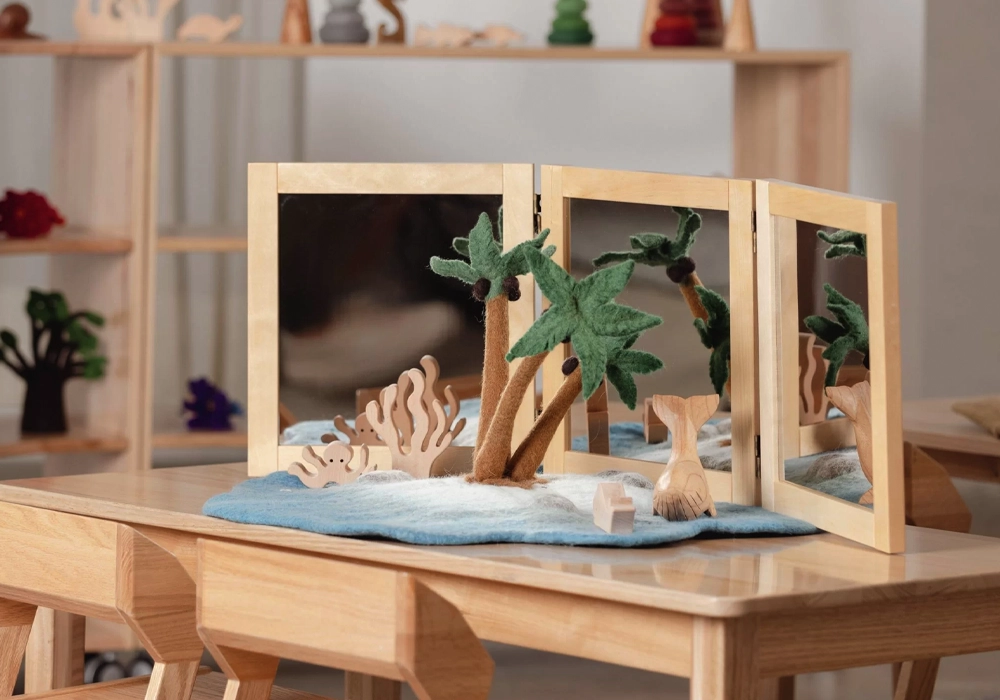
Various styles of Montessori Mirrors
Our Montessori Mirror collection offers a diverse range of options designed to support the developmental needs of young children. The selection includes floor-standing mirrors, wall-mounted mirrors, and interactive activity mirrors, all crafted precisely to ensure safety and durability. Available in multiple sizes, shapes, and frame styles, each mirror is designed to facilitate self-awareness, motor skill development, and independent exploration in line with Montessori principles. Customization options are available to meet the specific needs of your classroom layout and educational objectives.
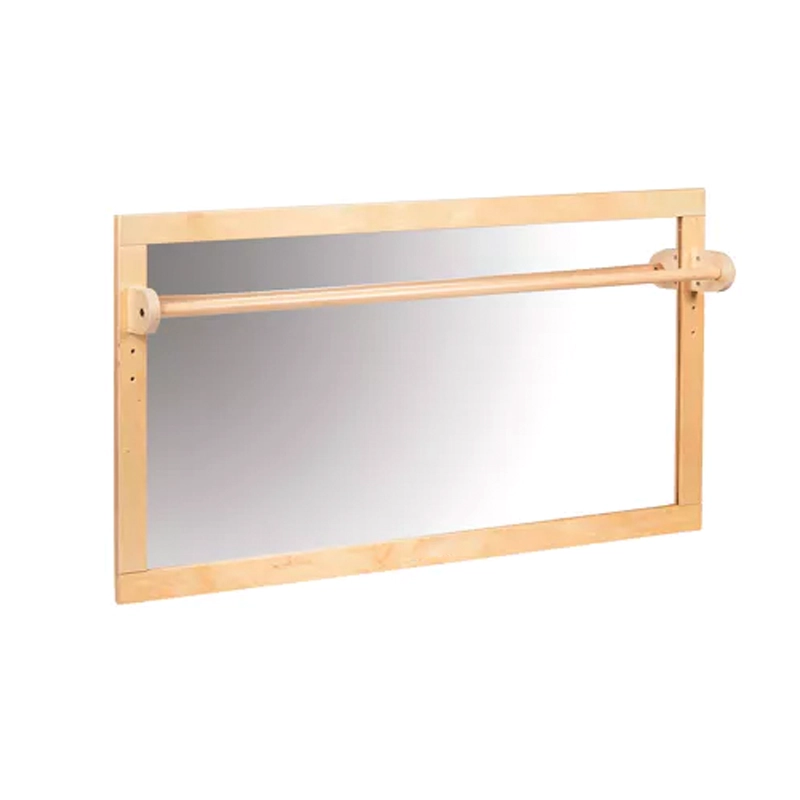
Mirror With Wooden Bar
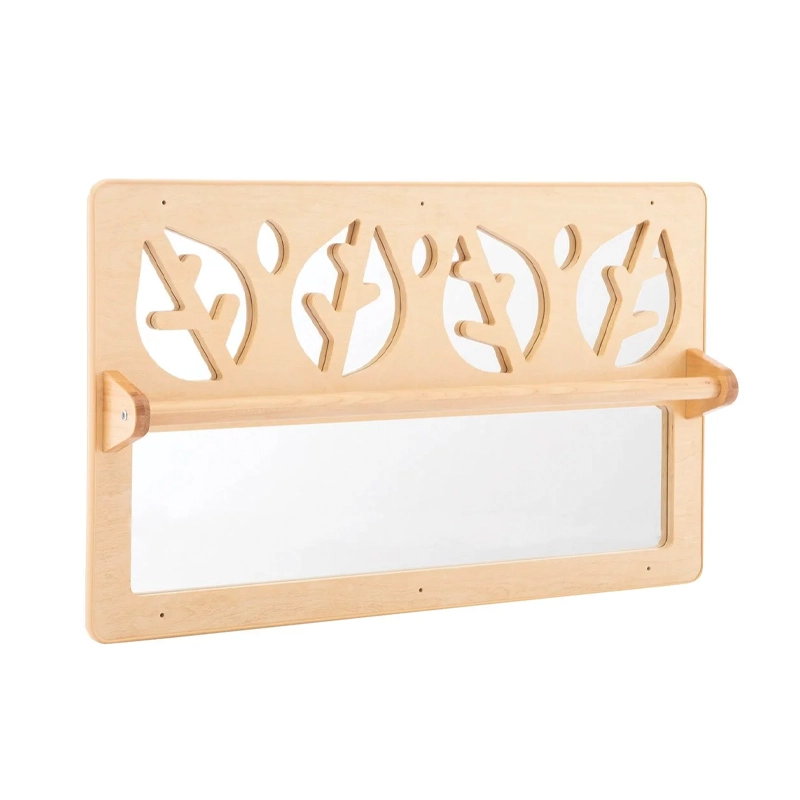
Exploration Mirror with Leaf
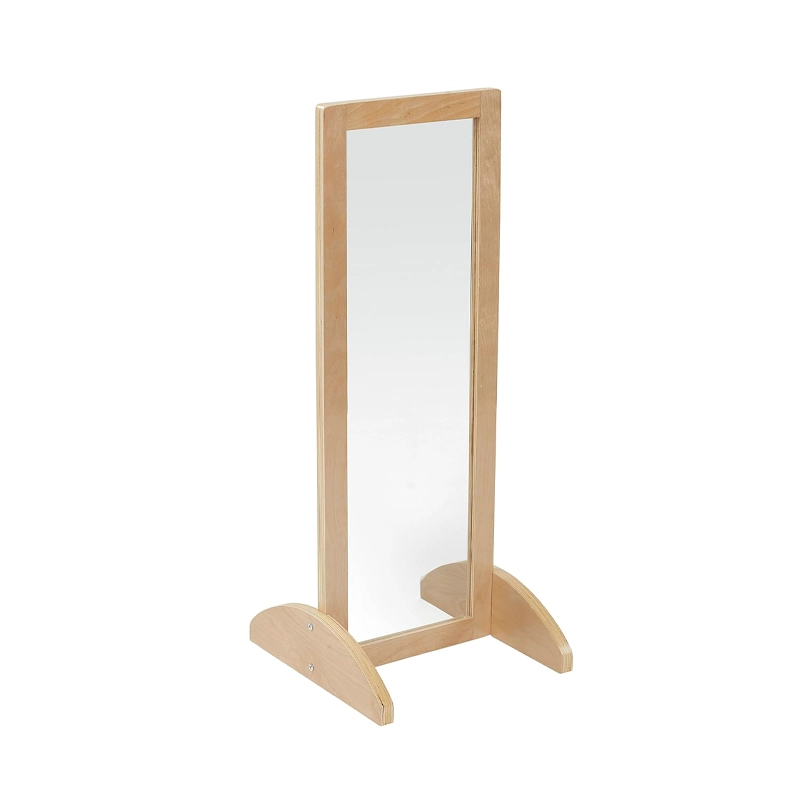
Single-Sided Mirror
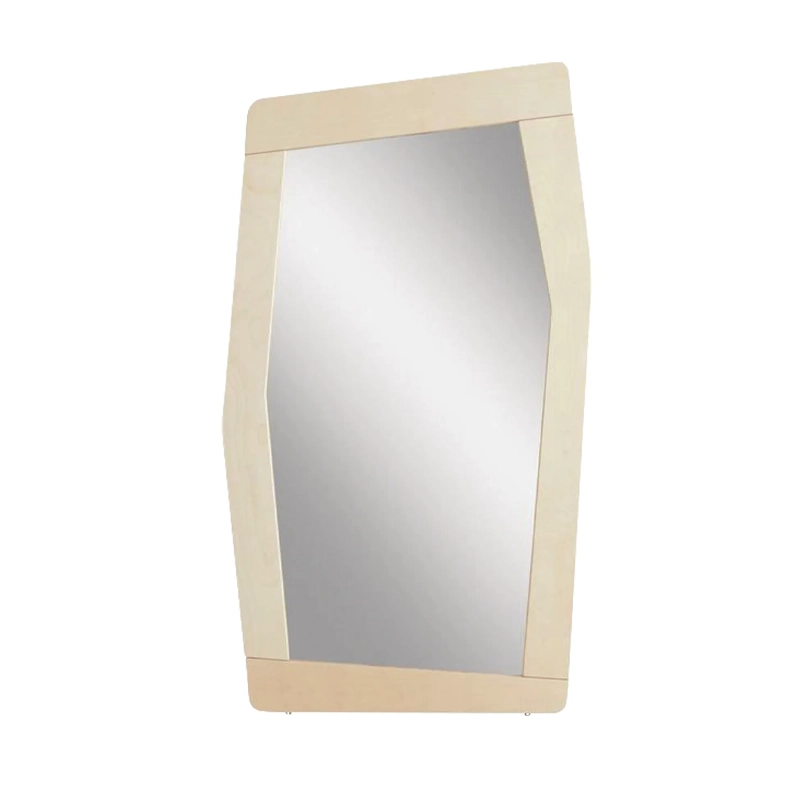
Irregular shape Mirror
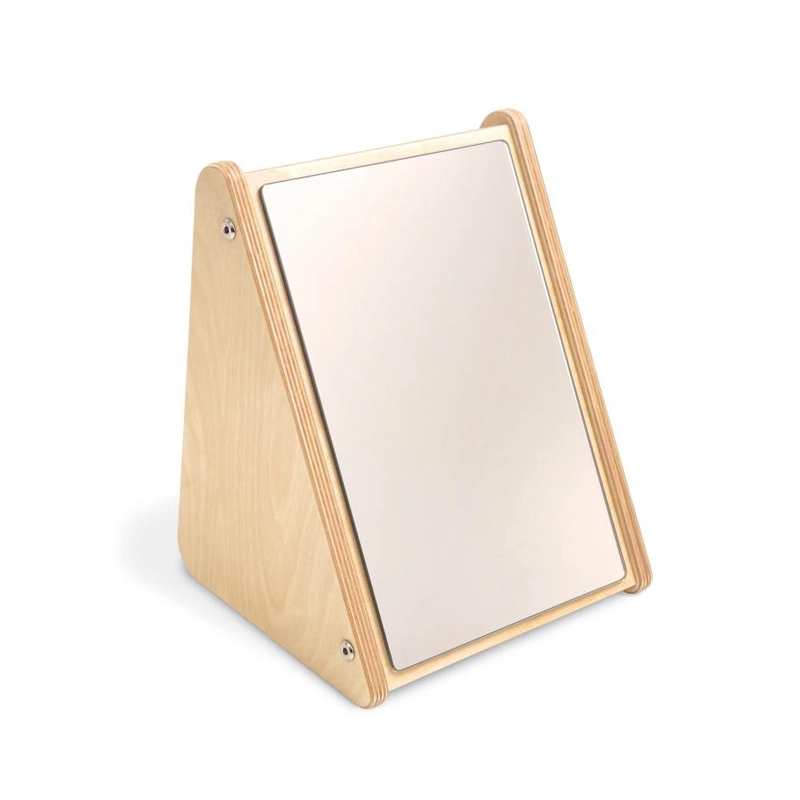
Small Mirror Stand
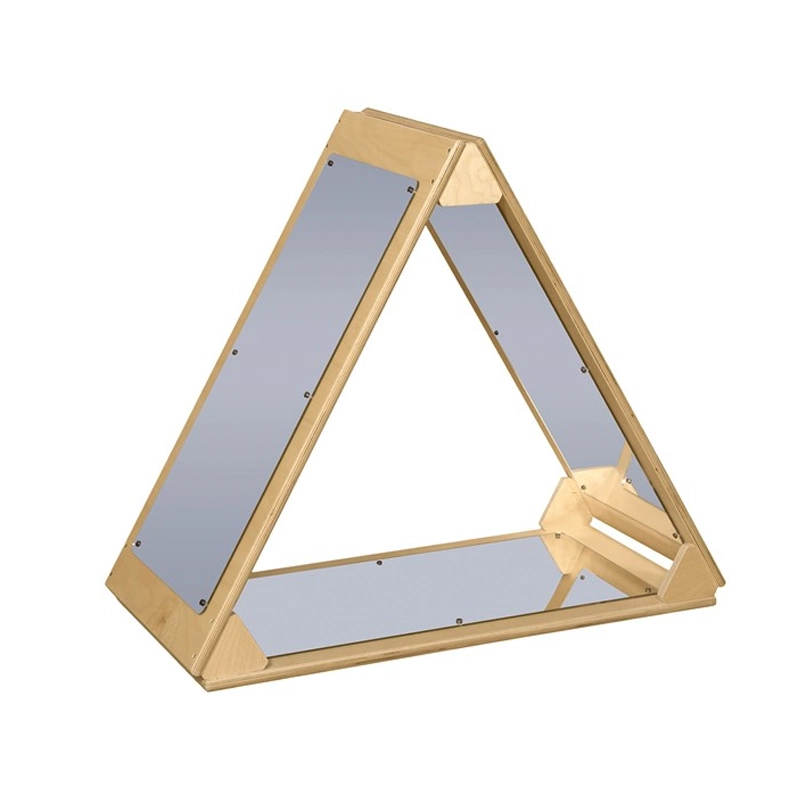
Triangle Mirror
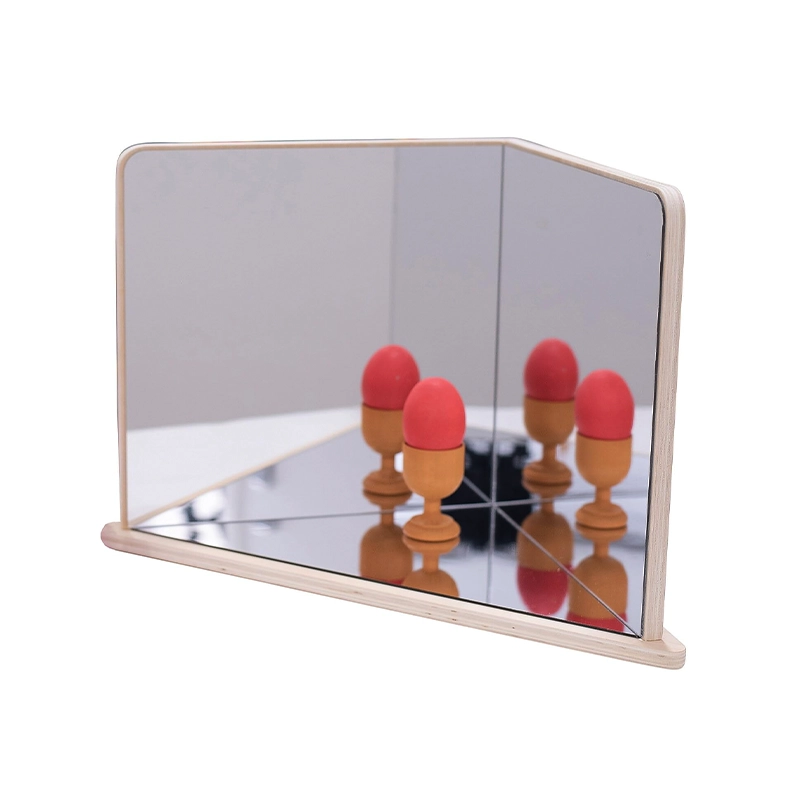
4-Way Mirror
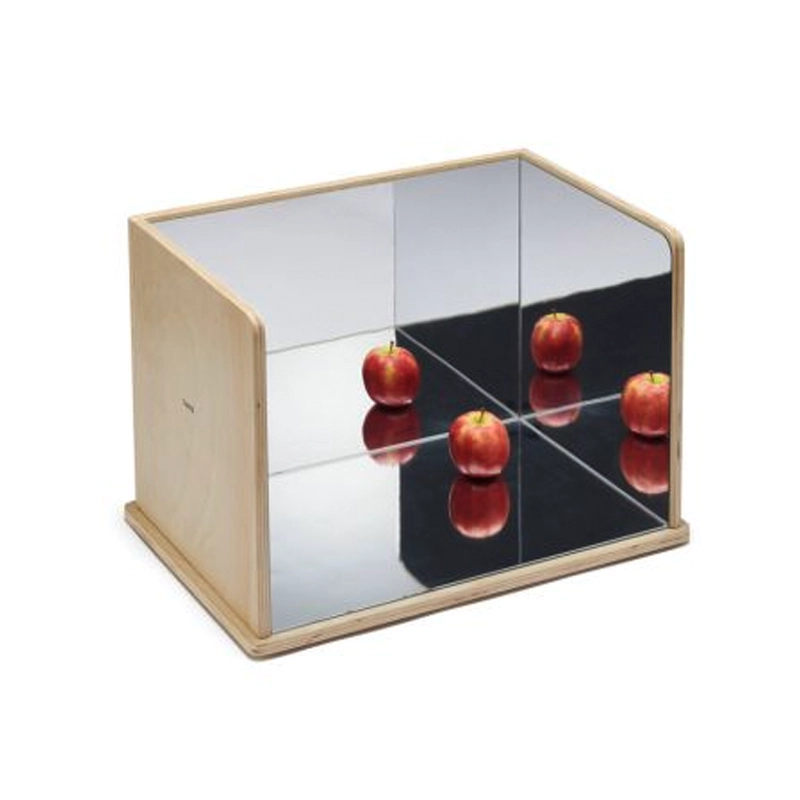
5-Way Mirror
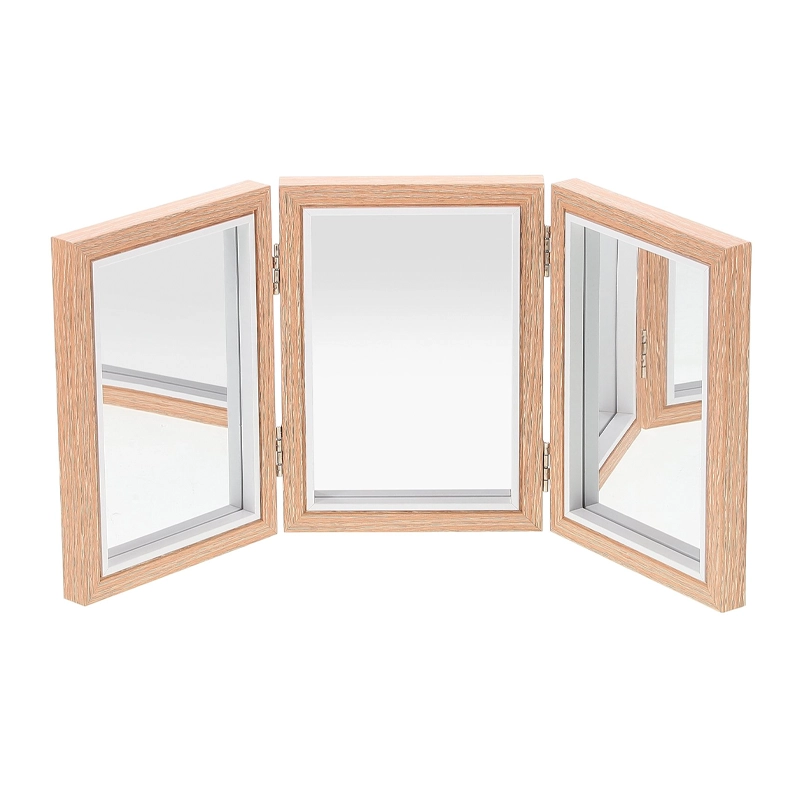
Foldable Mirror
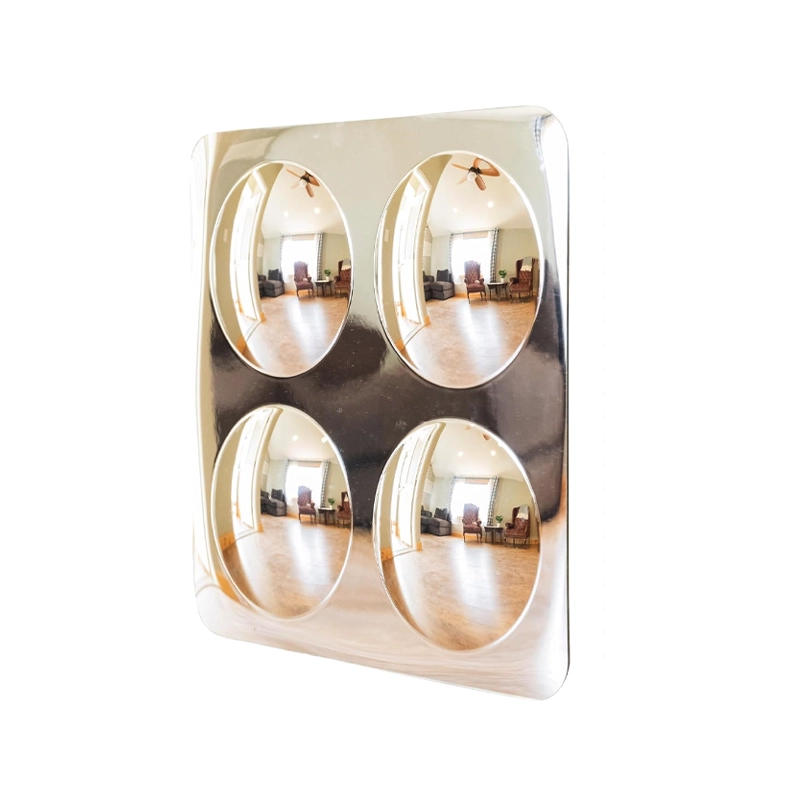
Sensory Toddler Mirror
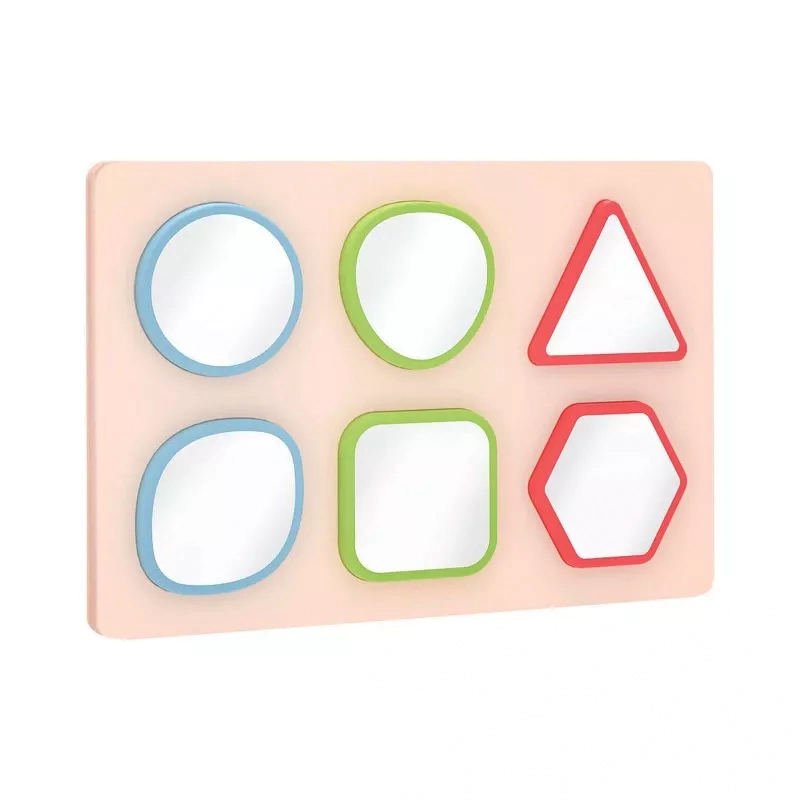
Infant Mirror Block Set
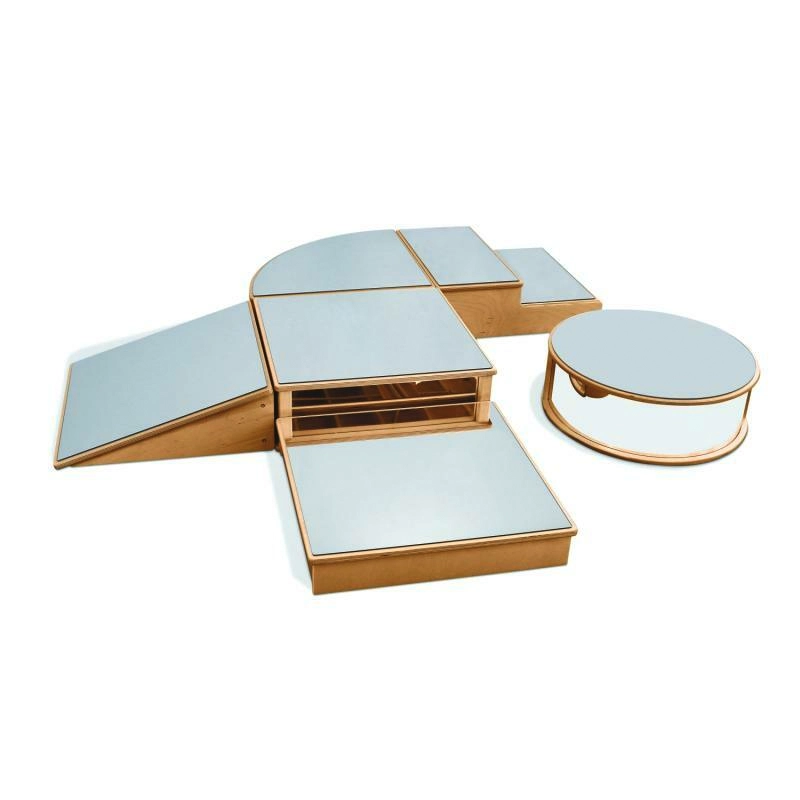
Floor Mirror Set
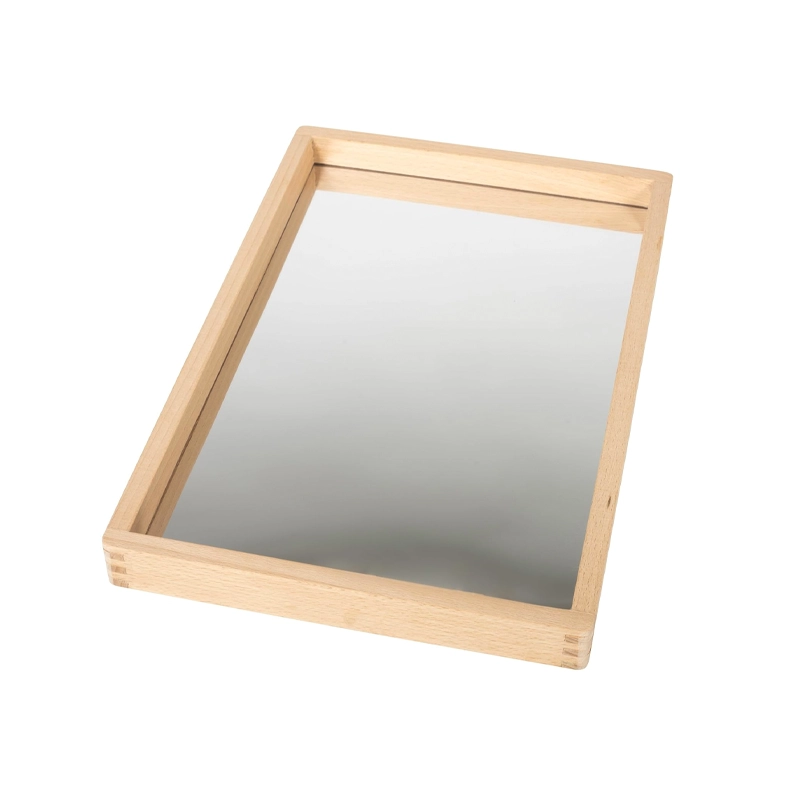
Wooden Mirror Tray
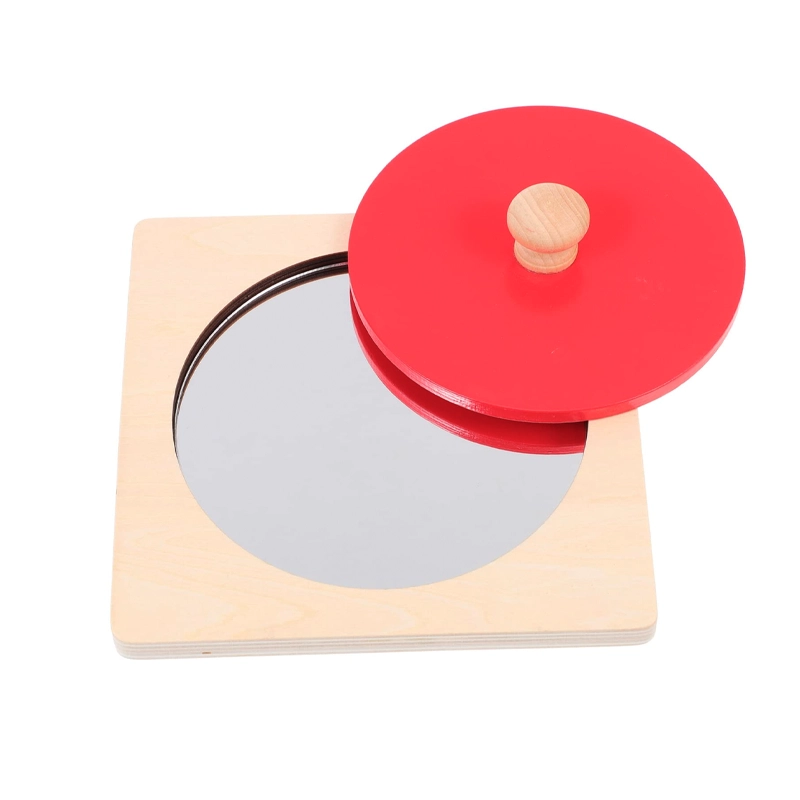
Funny mirror toys
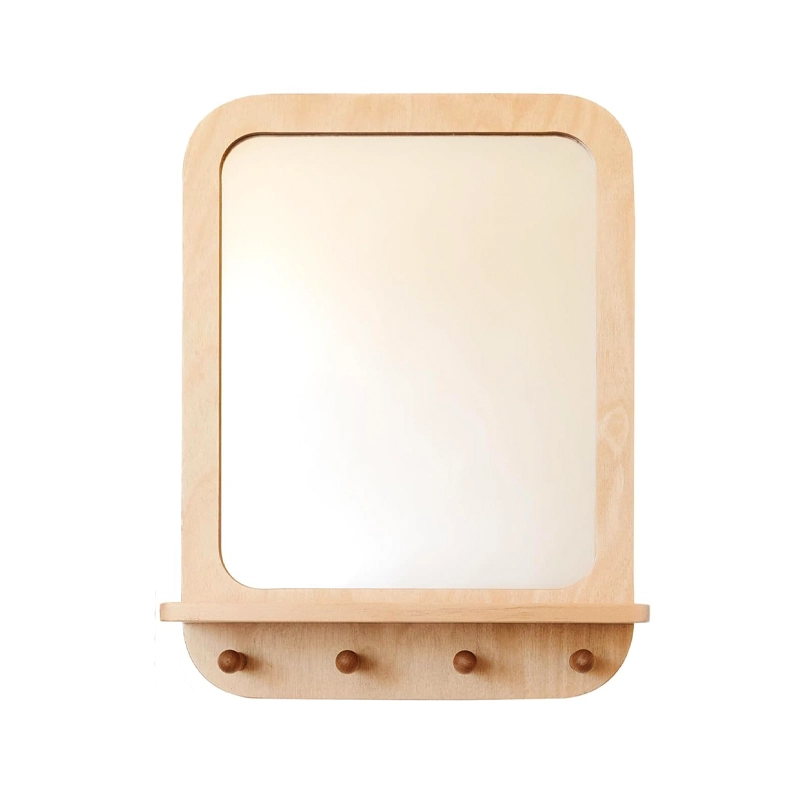
Entryway Mirror with Hooks
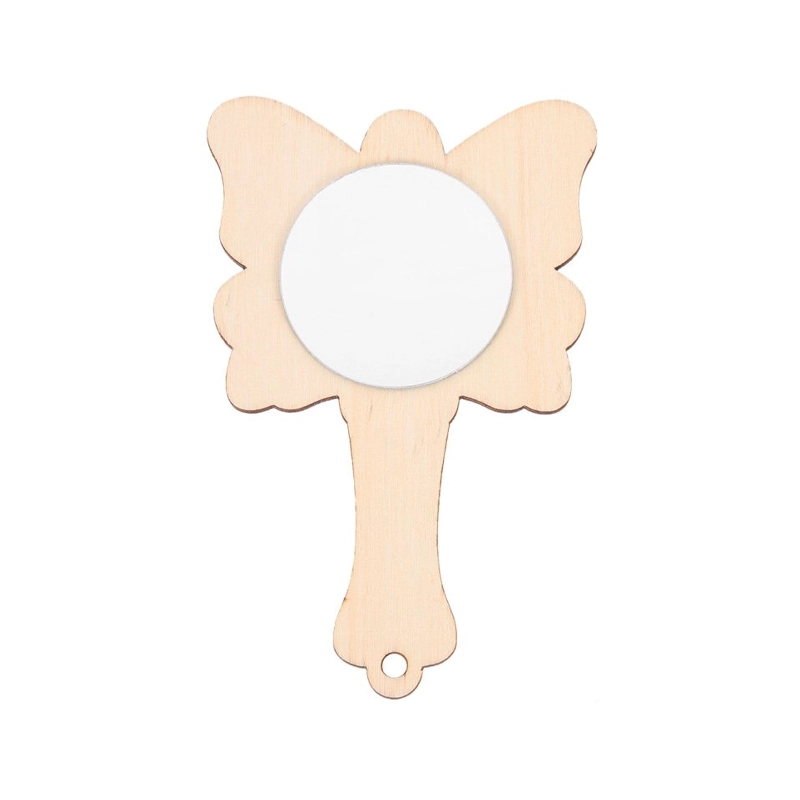
Handheld Mirror
Leading Manufacturer of Montessori Mirror
As a trusted manufacturer of preschool furniture, we offer customizable solutions to fit a variety of classroom layouts, ensuring safety, durability, and aesthetics. We specialize in high-quality Montessori mirrors that enhance the learning environment; we meet the needs of Montessori classrooms to promote independent exploration, sensory development, and self-awareness.
We offer a full range of services, from consultation and custom design to fast, reliable delivery. We focus on customer satisfaction and innovative solutions that support early learning. Partner with us to enhance your Montessori classroom with quality mirrors that create a positive, growth-oriented environment.
What is a Montessori Mirror?
A Montessori mirror is designed specifically for young children to engage with their reflection, helping them understand their bodies, movements, and emotional expressions. Unlike regular mirrors, Montessori mirrors are placed at the child’s eye level, allowing them to see their reflection easily. Montessori mirrors allow children to interact with their environment and develop self-awareness early. These mirrors are integral to Montessori classrooms, emphasizing hands-on learning and independent discovery.
Benefits of Montessori Mirrors
Improves Concentration
When children use Montessori mirrors, they are actively engaged in their reflection, which helps develop attention span and focus. By concentrating on their movements or tasks like dressing, they practice patience and fine-tune their ability to concentrate.
Boosts Confidence
Self-reflection promotes confidence. When children see themselves accomplishing simple tasks like brushing their teeth or trying on clothes, it enhances their self-esteem. They begin to feel proud of their efforts and accomplishments.
Encourages Independent Play
Montessori mirrors empower children to perform tasks independently, like exploring their features or organizing clothing. This fosters self-sufficiency, allowing children to develop their independence in everyday activities.
Improves Motor Skills
Using a mirror encourages children to engage in movements like dressing, adjusting their posture, or playing with toys. These interactions help children refine their coordination and control over physical movements.
Improves Social Skills
By seeing themselves, children begin to understand facial expressions and social cues. This helps them interact with others, promoting empathy and better communication skills.
Promotes Movement and Coordination
As children move around the mirror or explore different postures, they improve their body awareness and motor skills. Mirrors also enhance spatial orientation, balance, and overall physical coordination.
Types of Montessori Mirrors
When selecting the right Montessori mirror, it’s essential to understand the different types available. Your chosen type will depend on your space, your child’s needs, and your preferences.
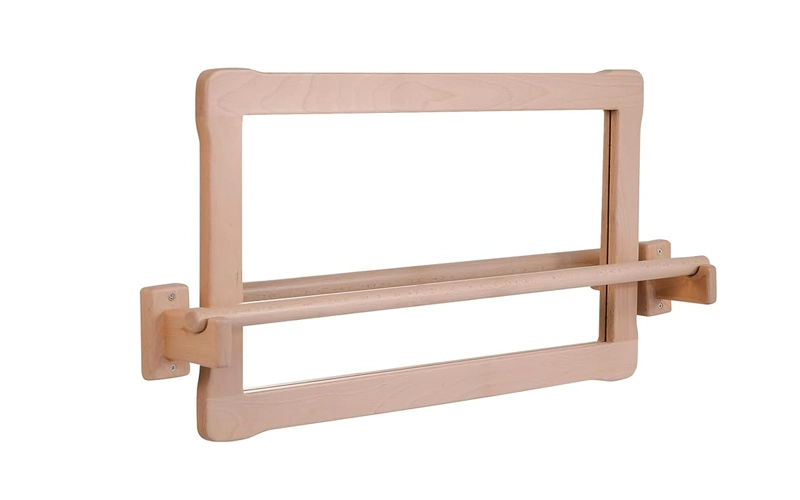
Wall-Mounted Mirrors
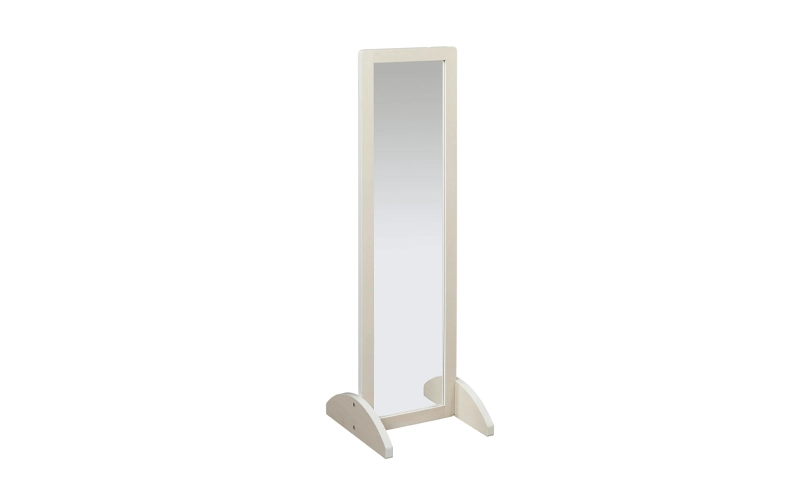
Floor-Standing Mirrors
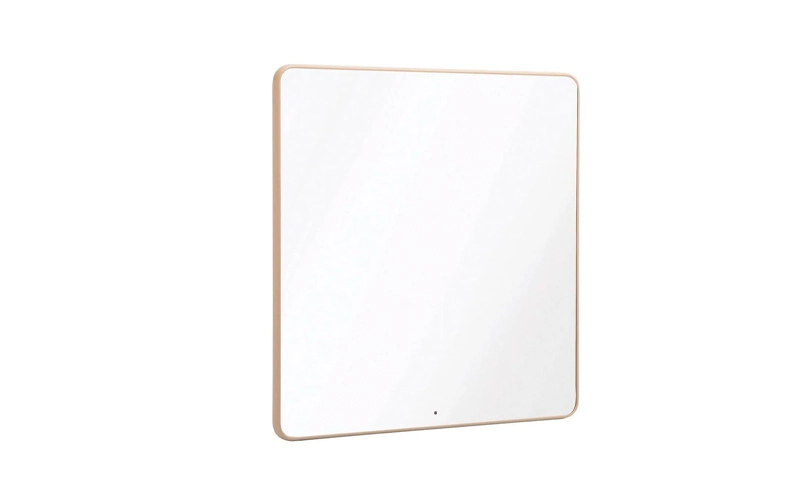
Safety Mirrors

Full-Length Mirrors
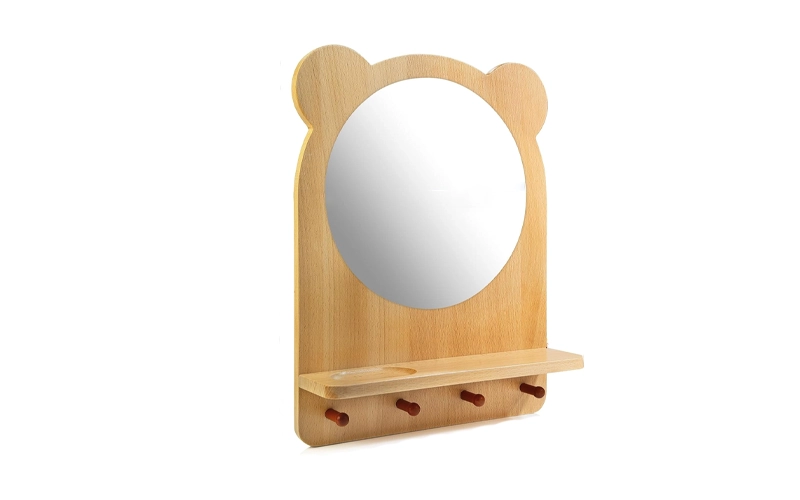
Montessori Activity Mirrors

Sensory Mirrors
Factors to Consider When Choosing a Montessori Mirror
Choosing the right Montessori mirror requires thoughtful consideration of various factors to ensure it meets your child's developmental needs.
ขนาด
The size of the mirror is crucial for ease of use. It should be large enough for the child to see their complete reflection but not too large that it overwhelms the space. A 2-3 feet wide and 3-4 feet tall mirror works well.
Sturdiness
Given that children often interact with the mirror, sturdiness is crucial. Choose a mirror that is durable and resistant to wear and tear. Mirrors made from solid wood or shatterproof materials are often more durable.
วัสดุ
Look for mirrors made with non-toxic, durable materials. Wooden frames are popular, but consider the finish to ensure they’re safe for children. Opt for shatterproof glass or acrylic to prevent accidents.
Baffles
Some Montessori mirrors have baffles to help control their movement. These baffles prevent the mirror from tipping over or getting damaged when the child is exploring.
Design and Aesthetics
The design should be simple, clean, and aligned with the Montessori principles. A minimalist design promotes focus and calmness, essential for a Montessori environment.
Safety Features
Choose mirrors with rounded edges and no sharp corners. Ensure that the frame is made of non-toxic material and that the glass is shatterproof. These safety features reduce the risk of injury.
Montessori Mirrors: Pros and Cons
| Pros | Cons |
|---|---|
| Promotes independence and self-sufficiency | Can be more expensive compared to regular mirrors |
| Enhances motor skills and coordination | Requires careful selection of materials for durability |
| Encourages emotional and social development | Needs regular cleaning due to fingerprints and smudges |
| Increases confidence and self-esteem | May not be suitable for all spaces (e.g., very small rooms) |
| Easy to install and adjust (for freestanding mirrors) | Some models may not be as durable as others |
| Helps with language and communication development | Large mirrors may take up more space in the room |
What Are Montessori Mirrors Made Of?
Montessori mirrors are typically made from natural materials such as wood, acrylic, or shatterproof glass. Wooden frames are the most common because they are sturdy, safe, and visually appealing. Some mirrors also feature a soft backing or anti-slip pads to ensure safety and prevent accidents.
Acrylic mirrors are becoming increasingly popular due to their lightweight nature and shatterproof quality, making them an excellent choice for homes with younger children.
When Did You Start Using Mirrors?
Introducing mirrors to your child’s environment is crucial for their developmental journey, and it can begin as early as six months. At this stage, babies start to show interest in their reflections, fostering early self-awareness and curiosity about their surroundings. By incorporating mirrors into their play space, you allow them to explore their emotions, movements, and physicality from a young age.
Early exposure to mirrors is integral to helping babies understand themselves and their body movements. The first interaction with a mirror helps develop motor skills, language, and emotional intelligence as they start recognizing themselves and their expressions.
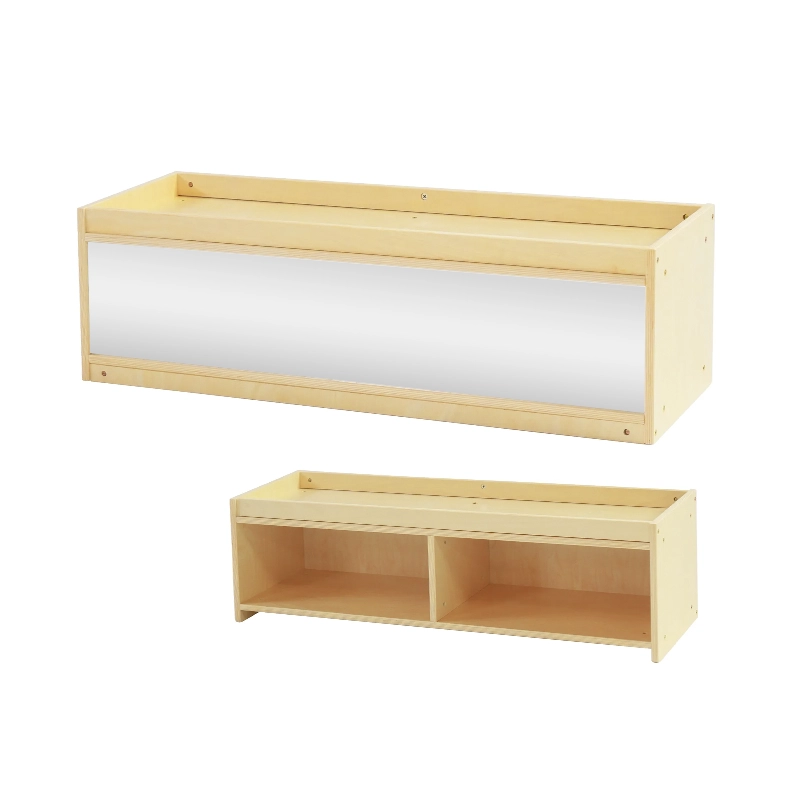
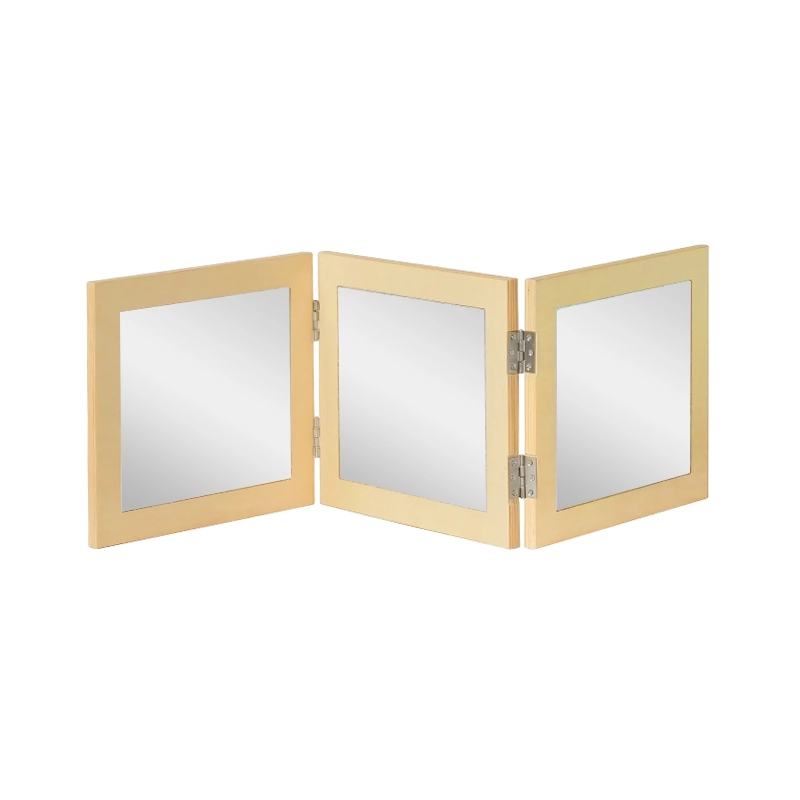
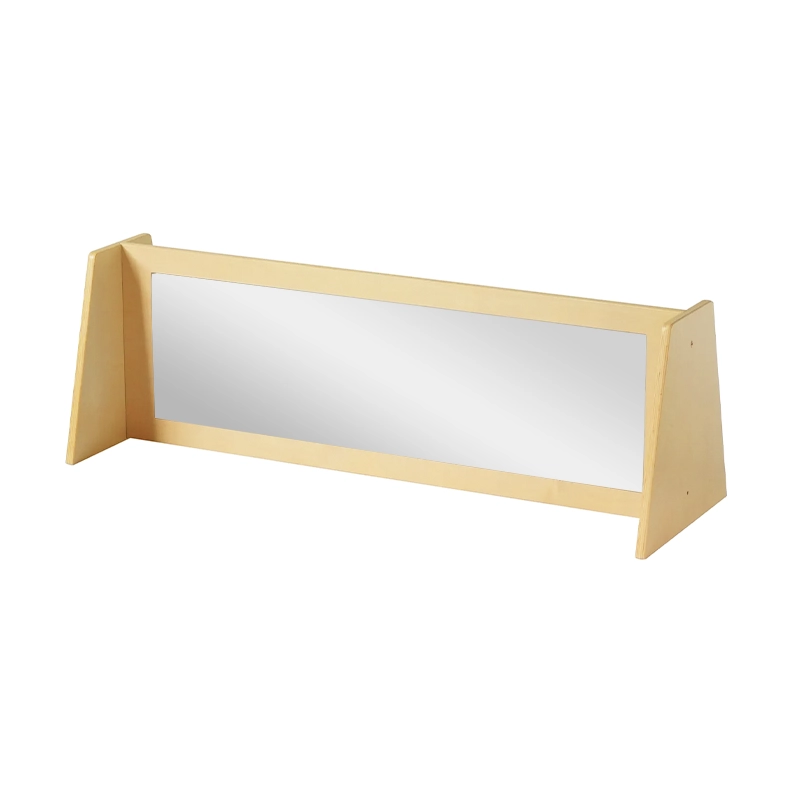
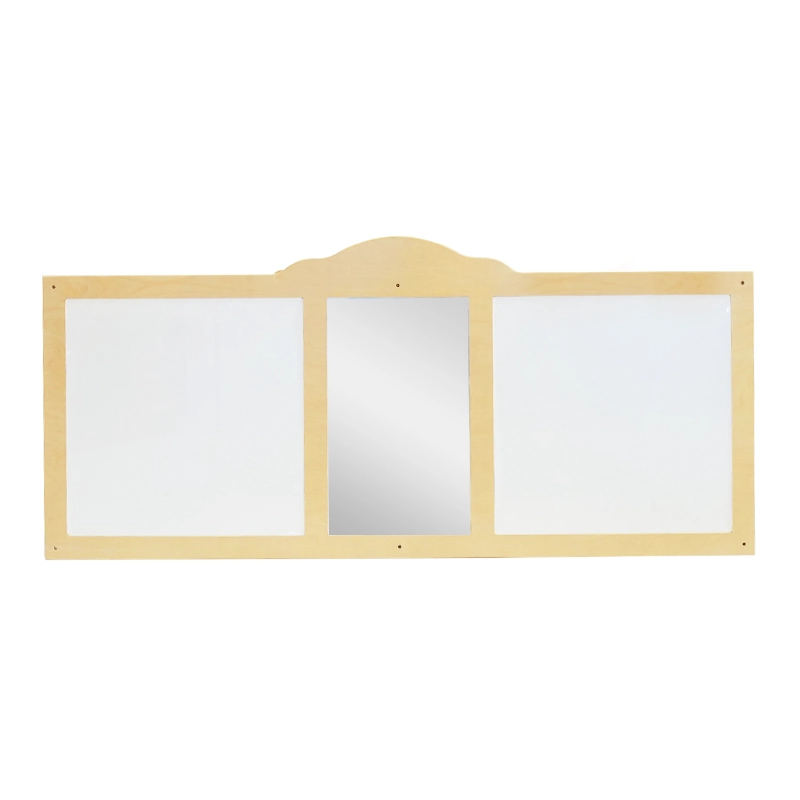
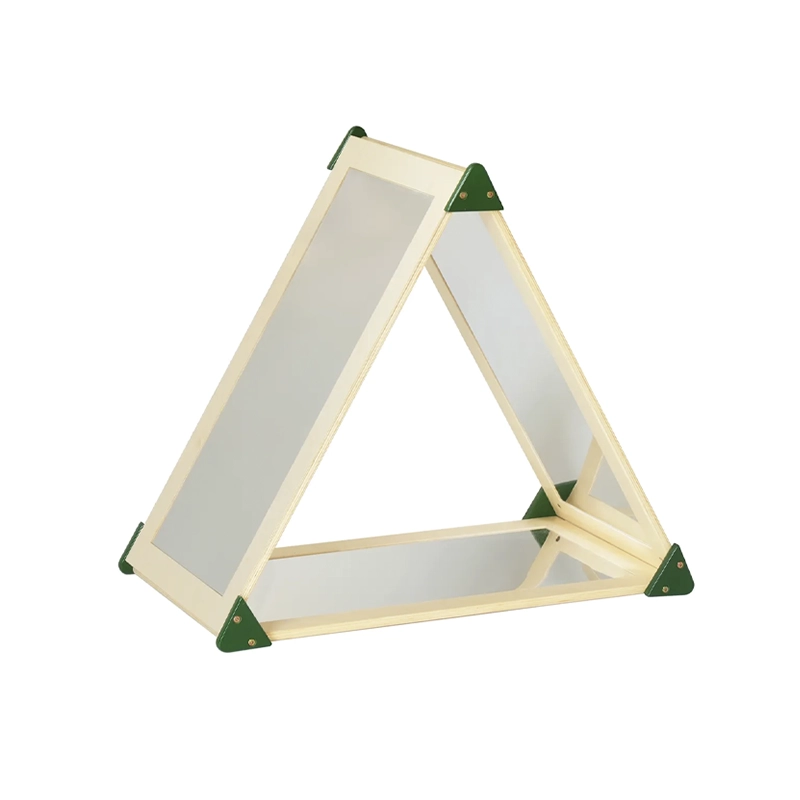
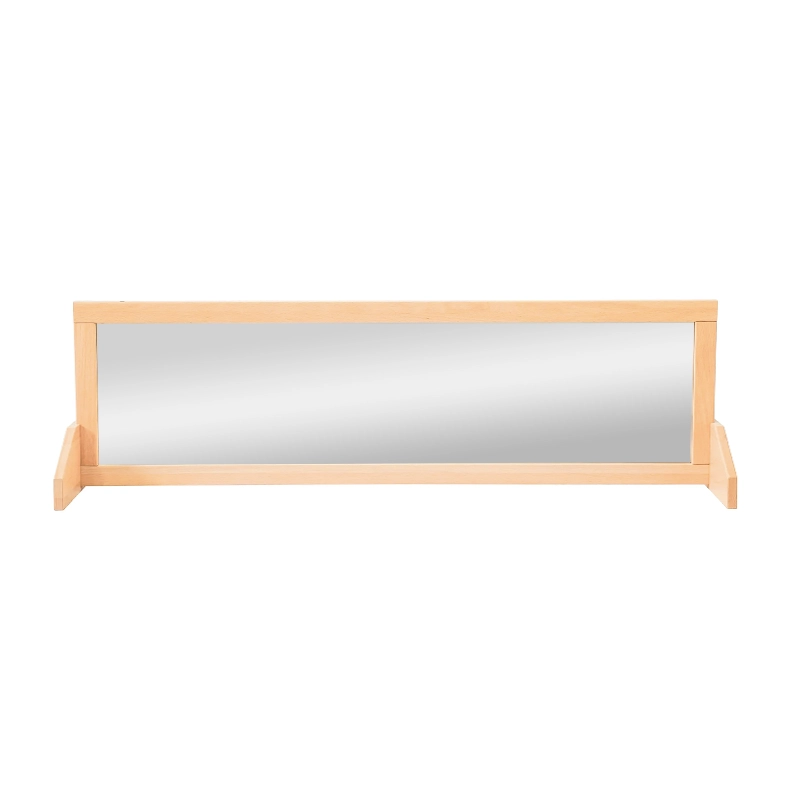
Montessori Mirror Specifications and Dimensions
The mirror should always be at the child’s eye level to encourage independent interaction and be large enough to offer a complete reflection without being overwhelming.
Choosing the Right Mirror for Your Child's Age
Montessori mirrors vary based on the child’s age and developmental stage. Here are some guidelines to help you choose the right mirror size and placement based on your child’s needs:
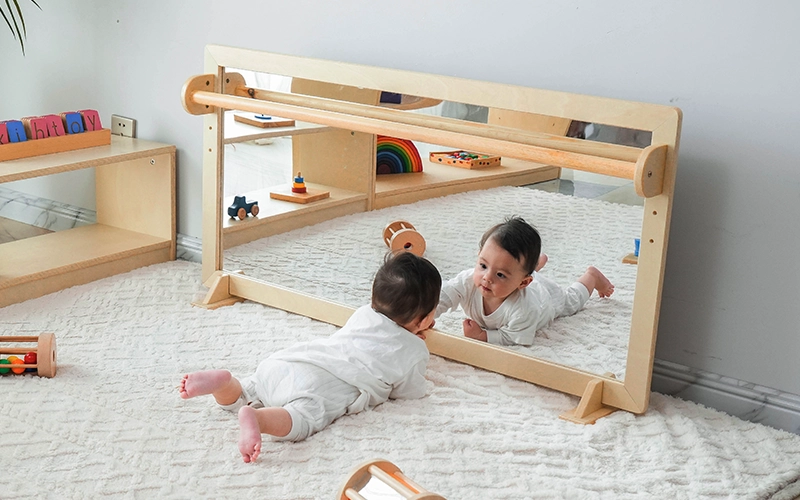
For Babies (6 Months to 1 Year)
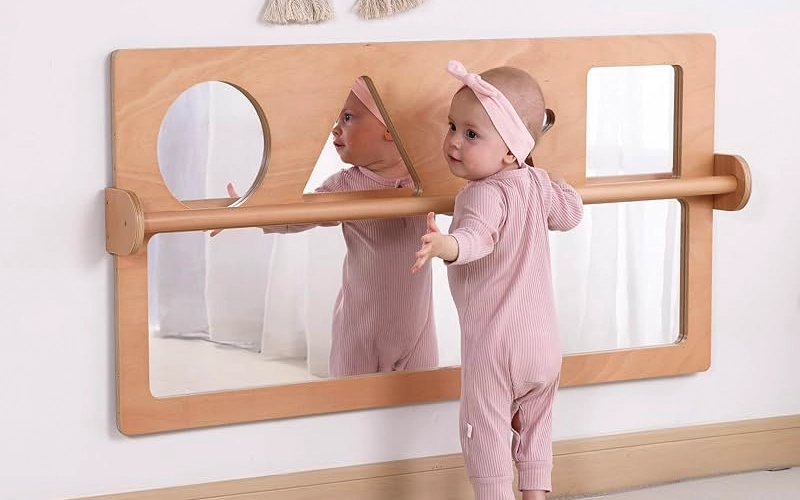
For Toddlers (1 to 3 Years)
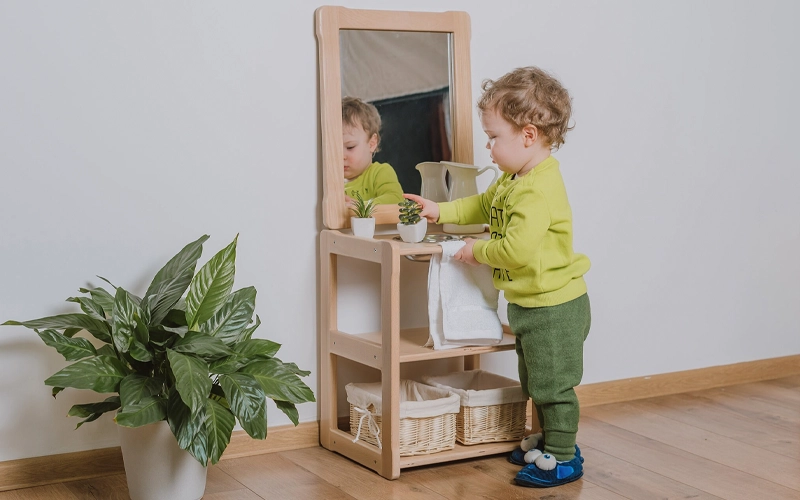
For Preschoolers (3 to 5 Years)
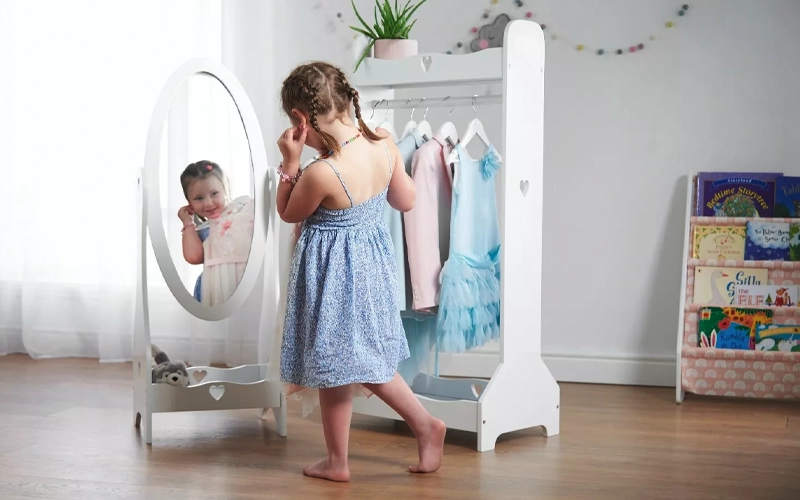
For Older Children (5+ Years)
The Role of Mirrors in Montessori Education
Mirrors play a pivotal role in Montessori education by fostering self-awareness and encouraging independent learning. In the Montessori method, mirrors serve as tools for self-exploration and self-discovery. They are designed to help children build confidence, develop fine motor skills, and promote emotional understanding.
In Montessori classrooms, mirrors are used for practical purposes and as essential developmental tools. They help children learn about their reflection, which leads to an early understanding of identity, body awareness, and emotional growth. Mirrors also enhance a child’s ability to engage in independent activities by providing visual feedback during play and learning.
Montessori Mirror Safety Guide
Safety is the most crucial consideration when choosing any child-related product, and mirrors are no exception. While mirrors benefit children’s learning, ensuring they are safe and secure in the home is equally important.
- Shatterproof Glass or Acrylic: Always opt for mirrors with shatterproof or acrylic surfaces to prevent injuries in case of breakage. Acrylic mirrors are lightweight and durable, making them an excellent choice for young children.
- Rounded Edges: Ensure the mirror has rounded, smooth edges to prevent cuts or bruises if your child accidentally bumps into it.
- Secure Mounting: For wall-mounted mirrors double-check that they are firmly secured to the wall at a height that the child can comfortably reach. Use proper anchors and screws to ensure that the mirror stays safely in place.
- Floor-standing Mirror Stability: If you choose a floor-standing mirror, ensure it has a broad base to prevent tipping. A top-heavy mirror can be dangerous if it topples over during play.
- Non-toxic Materials: The mirror frame should be made from non-toxic, child-safe materials like solid wood. Avoid mirrors with chemical coatings or toxic paints.
- Height Consideration: The mirror should be installed where the child can see themselves but not at a level where they can fall or push the mirror over.
FAQs
Mirrors support independent learning, body awareness, and emotional expression, which are essential components of the Montessori method.
While a regular mirror can work, Montessori mirrors are designed specifically for developmental purposes, ensuring better safety and interaction.
Ensure the mirror is securely mounted at the appropriate height using child-safe hardware, and for floor-standing mirrors, ensure they are stable to prevent tipping.
By observing themselves, children often begin to name body parts, actions, and emotions, which enhances vocabulary.
Wooden frames are most common, but shatterproof acrylic is also an excellent option for added safety.
Allow your child to explore the mirror freely. You can demonstrate activities like dressing, brushing hair, or simply making facial expressions in front of the mirror to encourage engagement.
Yes, Montessori mirrors are ideal for toddlers, as they help foster independence and support motor skill development through exploration and reflection.
ในฐานะผู้ผลิตและซัพพลายเออร์ชั้นนำด้านเฟอร์นิเจอร์สำหรับโรงเรียนอนุบาลมากว่า 20 ปี เรามอบความช่วยเหลือแก่ลูกค้ามากกว่า 5,000 รายใน 10 ประเทศในการจัดตั้งโรงเรียนอนุบาล หากคุณพบปัญหาใดๆ โปรดติดต่อเรา ใบเสนอราคาฟรี หรือเพื่อหารือเกี่ยวกับความต้องการของคุณ
